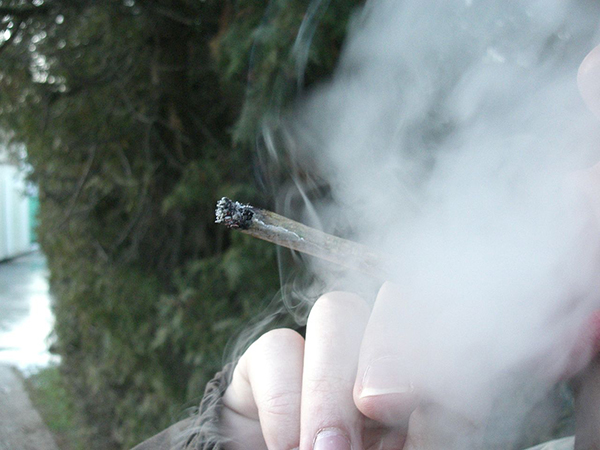
A new bylaw that will limit the number of retail cannabis stores in Prince Albert passed first reading on Monday.
Council voted by a 7-2 margin to prevent more than three such stores from operating within city limits. Prince Albert was limited to two cannabis retail stores when the provincial government began drawing retail licences in 2018. That restriction will expire in September.
Mayor Greg Dionne said he’s worried cannabis addiction will become as big a problem as alcohol if it’s not regulated. He views the cap as a way to keep cannabis consumption under control until more addictions programming is in place.
“It’s a drug,” Dionne said during an interview on Tuesday. “I treat it like alcohol. My biggest complaint is that I don’t believe we’re spending enough money to deal with addictions, and that’s why we approached it this way.”
Dionne said he believes there’s still room for one more cannabis store in the Cornerstone area, which is why council capped the number of stores at three instead of two. Council estimates there are around 20,000 Prince Albert residents old enough to legally purchase cannabis, He added that future councils can increase the cap if circumstances change.
“Revenue sharing might happen, and our population, hopefully is going to grow,” he said. “When those all come into play and justify making a move, the current council of the day can make those plans.”
However, not all city councillors felt the bylaw would help fight addiction in the community. Coun. Terra Lennox-Zepp was the most vocal critic. She said there was no evidence that limiting retail stores would decrease cannabis addiction, and argued doing so would create a government enforced monopoly that protected current retailers from competition.
“In this case, would we not want the free market to rule here?” she said during Monday’s meeting. “Do we not want competition in our city? Do we not want these lawful businesses in our city?
“These are property tax dollars. We’re always talking about revenue and being open for business, but not in this case? It doesn’t make sense. We don’t have evidence here that encourages us to move in this direction.”
Councillors who support the bylaw argued that eliminating all restrictions won’t be fair to Prince Albert’s two local cannabis retailors
Coun. Don Cody said those retailors went through “pure hell” to acquire the necessary licences and permits to open their stores. He thinks failing to protect them will put everyone out of business.
“They have to go through hoops of no end,” he said during the meeting. “They have to make applications. They have to put deposits down. You name it, and then on top of that, we gave them another hoop and charged them $20,000, so you know, all in all I am in favour of keeping those two whole, or else we’ll have a fragmented situation, and we won’t have anybody who makes any money.”
Cody added that there are already limits on how many liquor stores can operate within Prince Albert, so it makes sense to do the same with cannabis.
Coun. Evert Botha echoed those sentiments, saying Prince Albert businesses were already facing stiff competition due to online shopping. He said the bylaw would ensure physical retail stores remain profitable while business owners build a solid foundation.
“When you look at the pool of customers that exist in the city, they don’t have to go to one of the two stores in the city,” Botha told council. “You can go online and order from them, or order from any cannabis retailor from Sydney, Nova Scotia all the way to Vancouver Island in B.C.
“It’s online trading, and we do see that with a lot of our businesses in our city, where they’re losing market share to online retailors. I do strongly believe that by limiting the number of stores, we can ensure that these two or three cannabis stores can thrive in the future.”
Can limiting the number of cannabis retail stores also reduce addiction?
Researchers say reducing access to alcohol can help reduce alcoholism rates, but there isn’t as much scholarship in place for cannabis.
Organizations like the American Public Health Association (APHA) argue that increasing the availability of alcohol by allowing stores to open for longer hours or on more days is associated with higher rates of crime, vehicle crashes and alcohol related injuries.
In February 2019, a Canadian Alcohol Policy Evaluation study recommended Saskatchewan rethink how many private retail liquor permits were handed out and reduce the number of hours those stores can operate each day.
Studies about cannabis are harder to find. Drug policy experts at New York University (NYU) released a study last November that looked at how cannabis legislation in four U.S. states (Colorado, Washington, Oregon and Alaska) affected addiction rates.
Researchers noticed an increase in the number of people who met the National Survey on Drug Use and Health (NSDUH) criteria for cannabis use disorder among adults ages 26 and over. There was also a slight increase among adolescents (ages 12 to 17) or young adults (ages 18 to 25). However, the study’s lead author said those findings should be taken with a degree of caution since the changes needed to be tracked over a longer period of time.
The Canadian Public Health Association says roughly 10 per cent of cannabis users will develop an addiction. The number rises to 50 per cent for people who use cannabis daily or near-daily.
